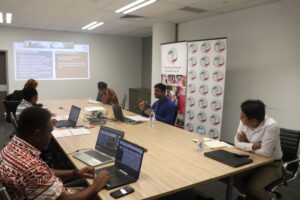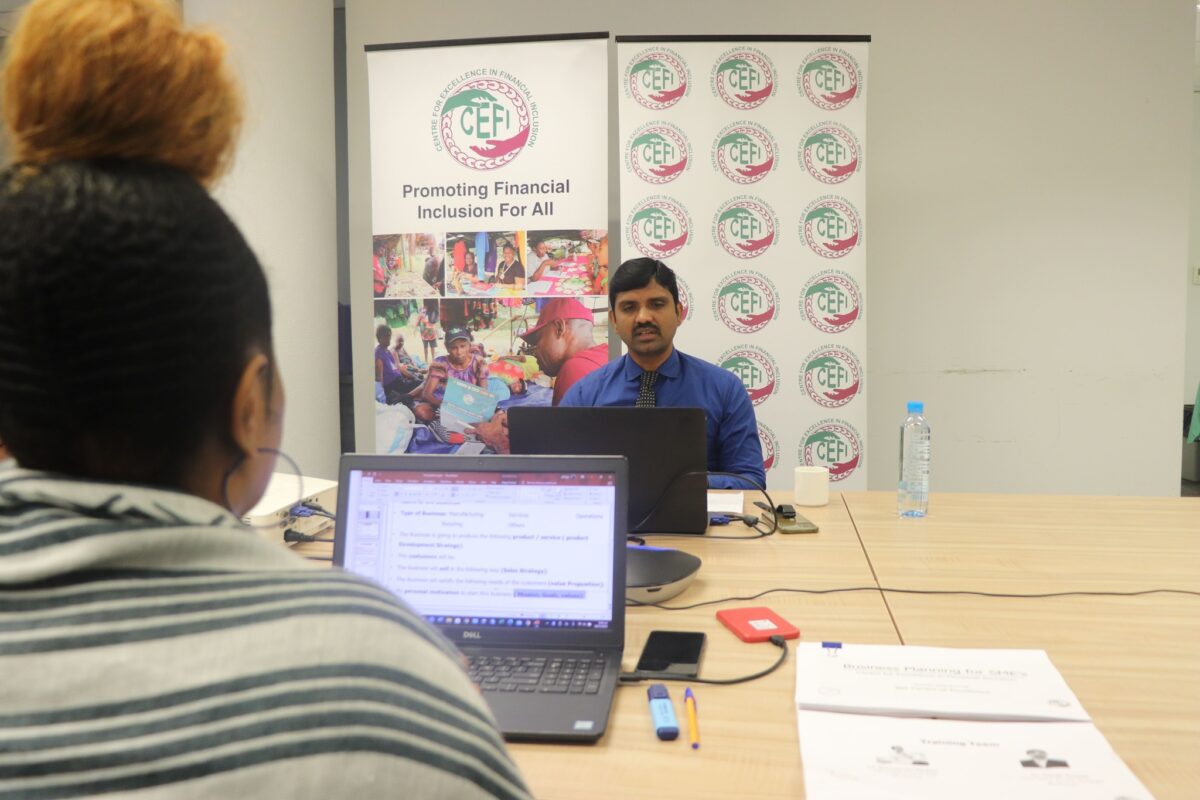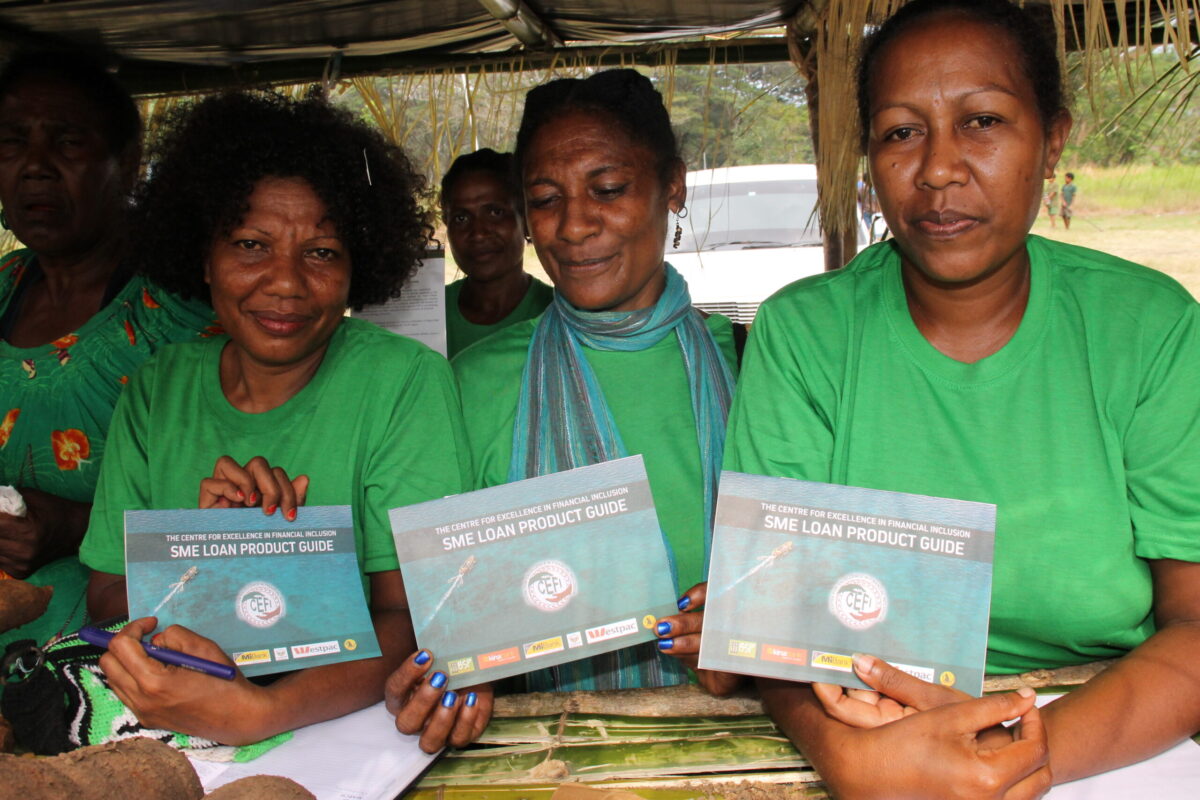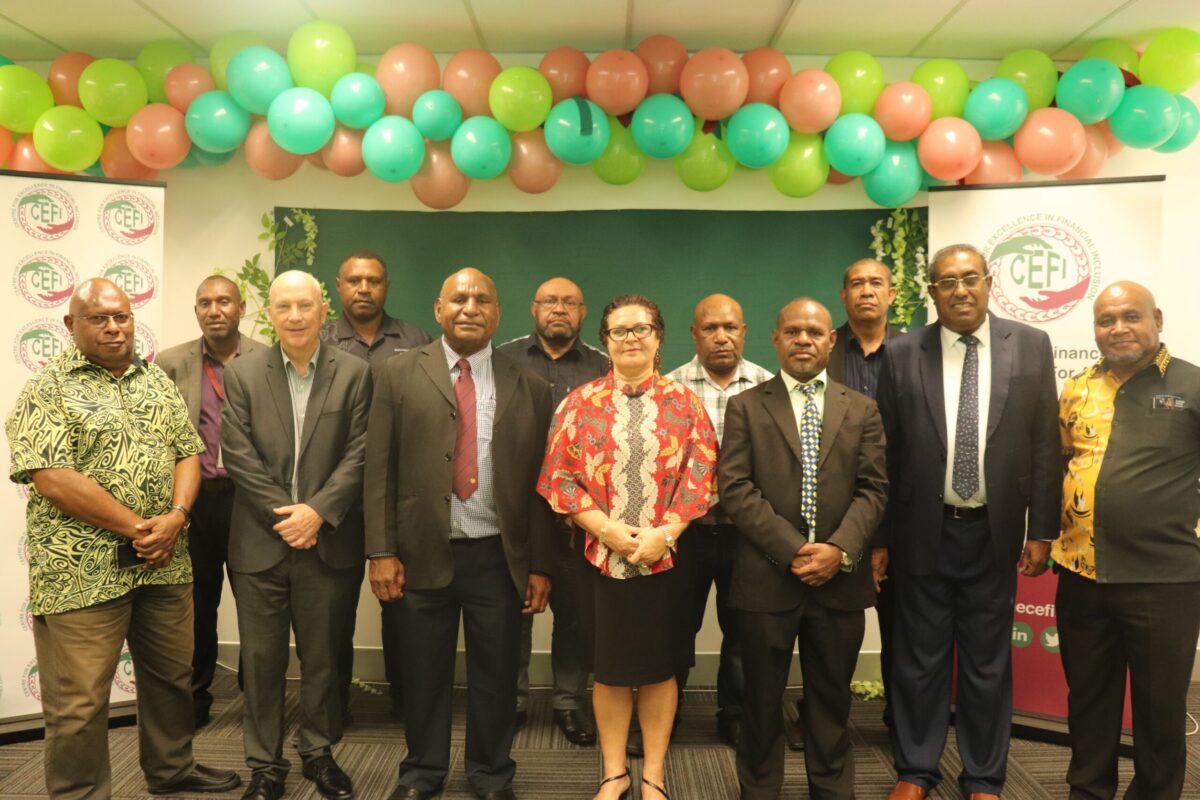





The Centre for Excellence in Financial Inclusion (CEFI) can play a significant role in enabling top-tier transparency and financial inclusion in Papua New Guinea (PNG) and the South Pacific. Here are some ways in which CEFI can intervene to achieve this:
Overall, CEFI can play a critical role in promoting financial inclusion and transparency in PNG and the South Pacific. By improving access to financial services, promoting financial literacy, and encouraging best practices among financial institutions, CEFI can help ensure that individuals and communities in the region can participate fully in the economy and achieve their financial goals.

the Centre for Excellence in Financial Inclusion, can play a significant role in providing financial literacy for the grass roots in Papua New Guinea (PNG). Financial literacy is crucial for individuals and communities to make informed decisions about their finances, including managing their income, savings, investments, and debt.
Here are some ways in which CEFI can intervene in providing financial literacy for the grass roots in PNG:
Overall, CEFI can play an important role in improving financial literacy and promoting financial inclusion in Papua New Guinea. By providing individuals and communities with the knowledge and tools they need to manage their finances, CEFI can help promote economic growth and development in the region.

The Centre for Excellence in Financial Inclusion (CEFI) commemorated its 10-year anniversary in a small but significant ceremony at its Port Moresby office on Friday March 24.
CEFI’s humble beginning was the outcome of the Microfinance Expansion Project in 2013, under the direction of the Bank of Papua New Guinea, Department of National Planning and Department of Treasury.
Since its establishment 10 years ago, CEFI has grown from strength to strength in becoming the leading industry apex organisation in coordinating, advocating and monitoring financial inclusion activities in Papua New Guinea.
CEFI Executive Director, Mr. Garima Tongia during his opening remarks acknowledged Bank of PNG, CEFI Board Members, CEFI staff, stakeholders and partners for playing very important roles in ensuring CEFI continued to carry out its mandate in financial inclusion.
Acting Governor of Bank of PNG and Chair of CEFI Board, Mrs. Elizabeth Genia during her congratulatory remarks applauded CEFI’s accomplishments in areas of financial literacy training, developing and implementing financial inclusion policies and documents and partnering with key stakeholders to deliver financial inclusion projects.
“It’s important to note CEFI board members and staff contribution to achieving this important financial inclusion milestone and also gratifying to see that the financial inclusion agenda is being actively promoted,” Mrs. Genia said.
The Acting Governor highlighted CEFI’s partnership with financial institutions in the area of financial literacy training stressing on CEFI’s collaboration with its partners to deliver financial literacy training to over 350,000 Papua New Guineans.
“CEFI is now trying to work with an international agency to conduct impact assessment of the trainings delivered and improve the training material,” Mrs. Genia added.
She praised CEFI’s dedicated strategy in using innovative technology to attract more women into the financial mainstream and economically empower them.
Some of the important projects that CEFI have used to bring gender equity into the financial inclusion domain include, introduction of the Ledger Pal Application for women SMEs, digital online training for women and development of a financial literacy mobile application.
Mrs. Genia also highlighted CEFI’s financial inclusion strategies developed and implemented in partnership with its important stakeholders from Government and private sectors between 2014 and 2020 and the participation of women in CEFI’s training programs.
Mrs. Genia also thanked Bank of PNG for some of its initiatives such as the SME Accelerator Program, Financial Consumer Protection, National Payment System and the Regulatory Sandbox approach, that supplemented the work of CEFI by providing assistance for Papua New Guineans to access knowledge, skills and information to run projects and businesses in the financial inclusive space.
Acting Assistant Governor, Financial System Stability Group, Bank of PNG, Mr. George Awap, who played a very key role in CEFI’s establishment, paid tribute and gave recognition to important key stakeholders who had worked with CEFI during the 10 years such as the Bank of PNG, the National Government, Asian Development Bank, Alliance for Financial Inclusion, World Bank and International Finance Corporation.
Mr. Awap acknowledged former governors of Bank of PNG for the foresight in supporting and driving the agenda of financial inclusion in PNG.
CEFI’s Financial Inclusion Adviser, Mr. Saliya Ranasinghe who was the organisation’s second Executive Director, reflected on some of CEFI’s key achievements including, NEC’s approval for CEFI established as an organisation, development of financial literacy training materials, development of the first financial inclusion strategy, launching and implementation of the financial inclusive strategy, partnerships with international agencies, statutory authorities, provincial governments, civil societies, and the many other important stakeholders that CEFI works with and continues to collaborate in the financial inclusion space.